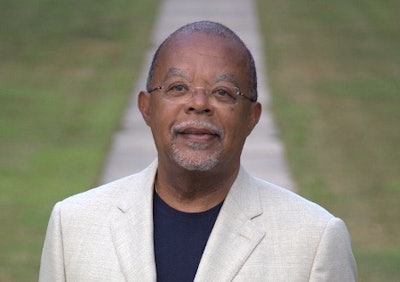 Harvard professor Henry Louis Gates Jr. will narrate the series, which charts the evolution of the African-American people.
Harvard professor Henry Louis Gates Jr. will narrate the series, which charts the evolution of the African-American people.Harvard professor Henry Louis Gates Jr. returns to television this fall to narrate the six-part documentary series “The African Americans: Many Rivers to Cross with Henry Louis Gates Jr.,” which presents a sweeping look at African-American history from the early 1500s to present-day America.
The series, which debuts October 22 and airs weekly through November 26 on PBS television stations, charts the evolution of the African-American people, exploring a wide range of cultural, political, religious and social developments that have defined the African-American experience in the U.S.
“The story of the African-American people is the story of the settlement and growth of America itself, a universal tale that all people should experience,” Gates said in a statement.
“Since my senior year in high school, when I watched Bill Cosby narrate a documentary about Black history, I’ve longed to share those stories in great detail to the broadest audience possible, young and old, Black and White, scholars and the general public. I believe that my colleagues and I have achieved this goal through ‘The African Americans: Many Rivers to Cross,’” added Gates, who is the Alphonse Fletcher University professor at Harvard University and director of the W.E.B. Du Bois Institute for African and African American Research.
During the series, Gates will take viewers to locations throughout the U.S. where he visits important historical sites, engages top historians, and interviews individuals who witnessed and participated in momentous events. Historical figures featured in the series include school integration pioneers Ruby Bridges and Charlayne Hunter-Gault, former Black Panther Kathleen Neal Cleaver, and former Secretary of State Colin Powell.
Over the past decade, public television audiences have grown familiar with documentary productions written and hosted by Gates. His past PBS series have largely focused on genealogy and topics related to the African Diaspora. Previous productions include “Finding Your Roots” (2012), “Black in Latin America” (2011), “Faces of America” (2010), “Looking for Lincoln “(2009), “African American Lives 2”(2008), “Oprah’s Roots” (2007), and “African American Lives” (2006).
Gates has said that he hopes to see the series have an educational impact that informs how Americans discuss and view race. “How can I help with the conversation about race? Schools are tools for the formation of citizenship. My target is the school curriculum: getting an integrated story told,” he told The Washington Post.
He notes that the upcoming series begins its exploration of African-American history with the African sailor who traveled to North America as a free man accompanying Spanish explorer Ponce de Leon who arrived in Florida in 1513. This was more than a century before the first 20 Africans arrived in Jamestown, Va., in 1620, according to Gates.
Historical accounts of Blacks in North America have typically begun with the Jamestown story. “Nobody [has been] talking about those first 107 years of African-American history,” Gates has said.
The series schedule is as follows:
Episode One: The Black Atlantic (1500–1800) – Tuesday, October 22, 8-9 pm.
Episode Two: The Age of Slavery (1800–1860) – Tuesday, Oct. 29, 8-9 pm.
Episode Three: Into the Fire (1861–1896) – Tuesday, Nov. 5, 8-9 pm.
Episode Four: Making a Way Out of No Way (1897–1940) – Tuesday, Nov. 12, 8-9 pm.
Episode Five: Rise! (1940–1968) – Tuesday, November 19, 8-9 pm.
Episode Six: It’s Nation Time (1968–2013) – Tuesday, Nov. 26, 8-9 pm.





















